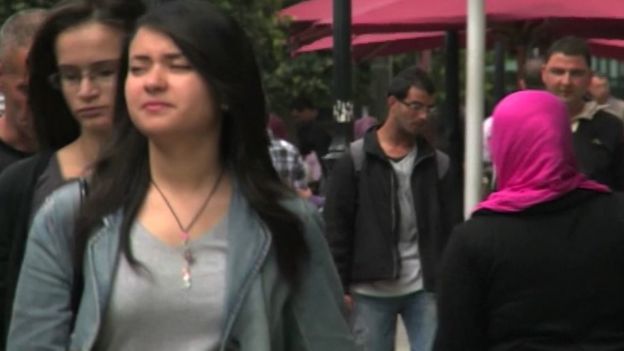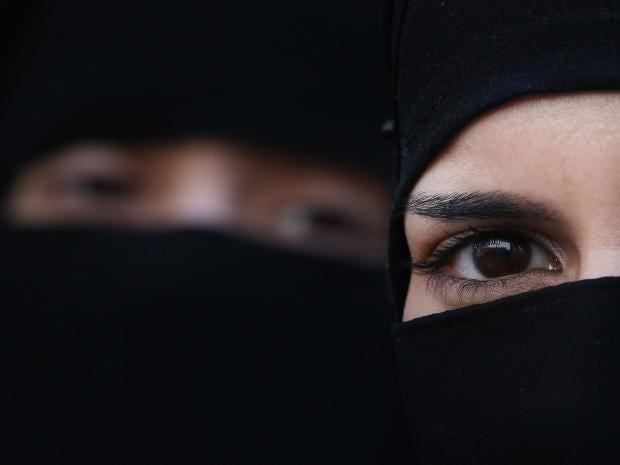One Step Forward, One Step Back
"Sometimes the women who come here ran away from a desperate situation with no luggage whatsoever, so we provide everything."
Sonia Mhamdi, office of the Ministry of Women, Family and Children, Gafsa, Tunisia
"The new law is innovative because before, when the woman was abused and forgave the abuser, he would not be punished by law."
"Now even if the woman forgives him, he will face the law and he will be accountable."
Amor Yahyaoui, general inspector, Ministry of Justice
"The women in the center provided me with legal assistance and also psychological support."
"I know my rights, but I need support to be sure that my children will remain safe in the process and benefit from at least some help."
"[She withdrew her battery complaints] because I didn't want my children to be without their father."
"[After her husband began beating their oldest child] I just could not take it any more."
Sihem Ben Romdhane, Gafsa, Tunisia
"Women and men come every day to the court for marriage issues and to ask for child support and women do not hesitate to complain about their violent husbands."
"It's not taboo anymore."
Mohamed Khlefi, Gafsa court public prosecutor
The Tunisian government is taking substantial measures against anti-women violence. [AFP]
Date of publication:
25 February,
2018
|
According to 2016 statistics, 60 percent of Tunisian women were exposed to domestic violence, a figure released by the Ministry of Women, Family and children, supported by studies from NGOs suggesting the actual number of women victimized by family violence to be even higher. Fifty percent of Tunisian women have stated that at least once in their lives they had experienced violent aggression in a public space.
Tunisia has been regarded as representing the most socially advanced of Arab countries for women's rights being upheld. Polygamy was altogether abolished in 1956, the year after independence. Women have long been able to gain custody of their children, along with the right to divorce. Despite which violence in domestic settings victimizes a large proportion of Tunisian women. They are discriminated against within society as they are in most Muslim societies.
Because these are Muslim societies where the Koran instructs men how they may treat women who are recalcitrant and urges men to beat such women with discretion, and at the same time warns that women are not independent of their husbands, must accede to them in all matters, and may not at any time deny their husbands sexual relations, else face due punishment. Multiple wives are not uncommon in Muslim countries.
 |
In Tunisia, however, a law passed a year ago that outlaws violent acts against women, and recommended that new shelters and other facilities whose purpose is to protect women be opened. Funded by the European Union, seven shelters operate throughout Tunisia, not an excess of havens in a nation where an estimated 60 percent of women are victims of domestic violence. Domestic rape is now outlawed. Moreover a rapist is now barred from the expedient of marrying his victim to minimize his sentence.
Should police fail to receive a woman's abuse complaint with the seriousness it calls for, he could himself face jail time. Under the new legislation, if the victim drops the charges, the investigation must continue. Many women, after lodging an official complaint, withdraw it when they are informed their husband will go to jail, and the abuse simply carries on, the wife loathe to carry through. If a police officer now makes an effort to have a woman change her mind about bringing charges, he will himself be charged.
Any witness of violence against women who fails to report it may be prosecuted, as well. Two years in prison is the punishment for sexual harassment. Domestic-violence-specific courts and judges dedicated to sitting in judgement in cases of domestic violence, along with special police units, led mostly by women all represent new initiatives in an effort to reduce the numbers of women who face violence in their lives.
They won't take inspiration on women's liberation from Wonder Woman, though; it's been banned in Tunisia.
 |
| Tunisia's new law could lead to a cultural revolution for Muslim women across the Arab world, human rights organisations hope Getty |
Labels: Female Subjugation, Islam, Tunisia, Women's Rights

<< Home